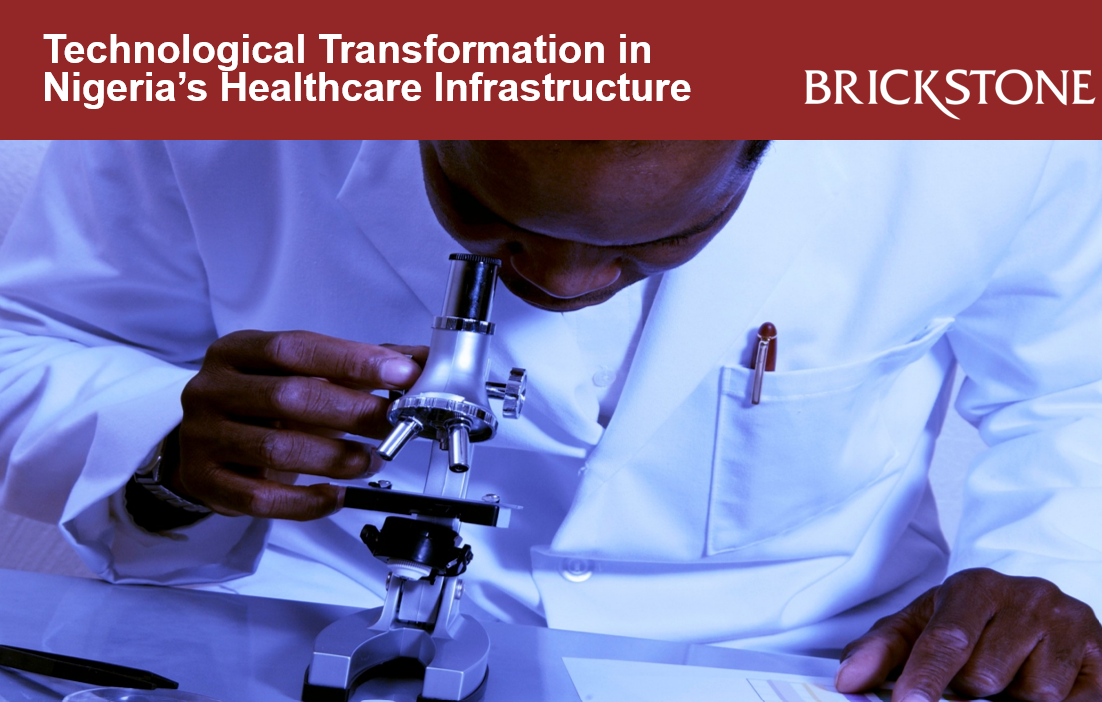The Need for Technological Transformation in Nigeria’s Healthcare Infrastructure
Nigeria’s healthcare infrastructure has over the years suffered several down-falls. It is majorly characterized by inadequate and poorly maintained health facilities, and dearth of medical resources, particularly at the primary healthcare level, all of these substantially affects the quality of health in Nigeria.
According to the International Trade Administration, Nigeria’s healthcare infrastructure indicators are some of the worst in Africa. The country has one of the fastest growing populations globally and with 5.5 live births per woman and a population growth rate of 3.2 percent annually, is estimated to reach 400 million people by 2050. With its rapidly growing population and these developmental challenges, the country drags down the socioeconomic indicators for the entire African continent.
As a way forward, experts have emphasized on the need for Nigeria’s healthcare infrastructure sector to leverage on technological advances to improve the quality of healthcare in the country.
This article by Brickstone reviews some institutional reports and publications on the need for technological transformation in Nigeria’s healthcare infrastructure sector.
Technological Transformation in Nigeria’s Healthcare Infrastructure
An average of 20,000 Nigerians travel to India each year for medical assistance due to the absence of a solid healthcare system at home.
Healthcare infrastructure in Nigeria is still underdeveloped and lacks modern medical facilities. To drive quality healthcare services, there’s the need for the sector to embrace the current realities of rapidly-evolving health technologies and innovations.
According to The Guardian, it was expected that with the growing rate of technological transformation occurring in every sector and across diverse industries, the Nigerian healthcare sector would be greatly impacted and show significant progress. In reality, the healthcare system in Nigeria has failed to advance technologically, lagging behind other advanced global healthcare systems.
In 2018, the World Health Organization estimated that there were only 3.81 doctors per 10,000 population in Nigeria. With a growing population of over 215 million individuals who remain underserviced by an underfunded and badly governed health infrastructure. This reflects that the urgent advancement in healthcare technology becomes a matter of life and death for millions in the nook and crannies.
According to SRHIN, technological transformation in Nigeria’s healthcare infrastructure sector would provide better care for patients and help achieve health equity. It will also increase patient safety, decrease medical errors, and strengthen the interaction between patients and healthcare providers. Also, using technology will increase provider capabilities and patient access while improving the quality of life for some patients and saving the lives of others. It will also fasten clinical processes and significantly improve patient satisfaction, the hiring of staff of the highest calibre, and the ensuring of compliance with regulations.
Technological advancement in Nigeria’s healthcare infrastructure will undoubtedly transform patient-care efficiency, ensuring utmost customer satisfaction and a better quality of life for both patients and physicians.
The future of healthcare is shaping up significantly across the world with exceptional progress made in digital healthcare technologies such as artificial intelligence, VR/AR, 3D-printing, wearables, robotics, nanotechnology, among others. Telemedicine has expanded beyond its original scope, now offering a broad range of long-distance patient and clinician contact, care, advice, reminders, education, intervention, monitoring, and even remote admissions.
As digital health services rely on the availability of telecommunication and internet services, Nigeria has a massive opportunity for innovative disruption. The sustainable growth of the healthcare industry in Nigeria relies on embracing various technological innovations as the use of technology is needed to improve the quality of care and service delivery.
As healthcare equipment manufacturers continuously produce innovations which streamline medical procedures, this ensures limited risks of medical negligence.
Read more here.






